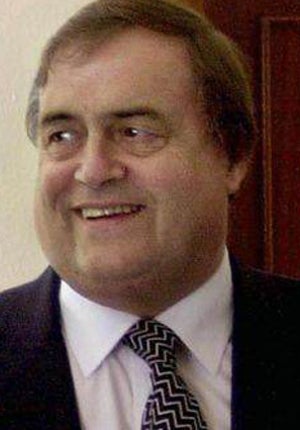Prescott evidence triggered new Met inquiry, court told

Evidence that the News of the World's private investigator illegally snooped on John Prescott while he was running the country helped trigger the new police inquiry into phone hacking, the High Court heard yesterday.
Glenn Mulcaire had sent the paper's journalists a phone number and PIN for Mr Prescott's chief of staff Joan Hamell, and transcripts of 45 voicemail messages left by the Deputy Prime Minister, the court was told.
Lawyers for the Metropolitan Police said the News of the World's owner, News International, passed the email dated 28 April 2006 to the Metropolitan Police in January. The "significant" new evidence led to Operation Weeting, the new police inquiry into allegations the News of the World systematically invaded the privacy of hundreds of public figures.
James Lewis QC, for the Metropolitan Police, made the disclosure as he sought to kill off a judicial review of the Met's handling of the phone hacking affair by four individuals, including Mr, now Lord, Prescott. Lord Prescott, Labour frontbencher Chris Bryant, freelance journalist Brendan Montague and the former Metropolitan Police commander Brian Paddick claim that the police failure to inform them they may have been victims breached their human right to privacy.
The Metropolitan Police argued that the evidence of against them had been limited, the courts should not "micromanage" the police, and the hearing was "academic" now that Operation Weeting had begun. Mr Lewis said that "operational shortcomings" may have influenced the police failure to inform all the potential targets of Mr Mulcaire that they may have had their phone intercepted.
In 2006, none of the 10,000 pages of Mr Mulcaire's "jottings" recording names and phone numbers had been entered by police into a computer, he said. And even when the pages were subsequently entered into the Holmes computer system, not all were scanned rendering searches of individual names incomplete. He said that initially only Mr Bryant's name and number had been found in Mr Mulcaire's notes; later, they discovered that 23 phone numbers on another page had been associated with him (Mr Bryant said the 23 numbers had been on the facing page).
Representing the claimants, Hugh Tomlinson QC, for the claimants,accused the Met of repeatedly failing to disclose the true scale of the evidence about them. Contacting the claimants earlier would have allowed the individuals to increase their phone security and take measures to remedy the alleged breach of privacy, he said.
"This is obviously a case in which the police felt they were not obliged to inform victims of violations of privacy that they have been the victims of violation of privacy," Mr Tomlinson added. Mr Justice Foskett will deliver his judgment soon.
Bookmark popover
Removed from bookmarks